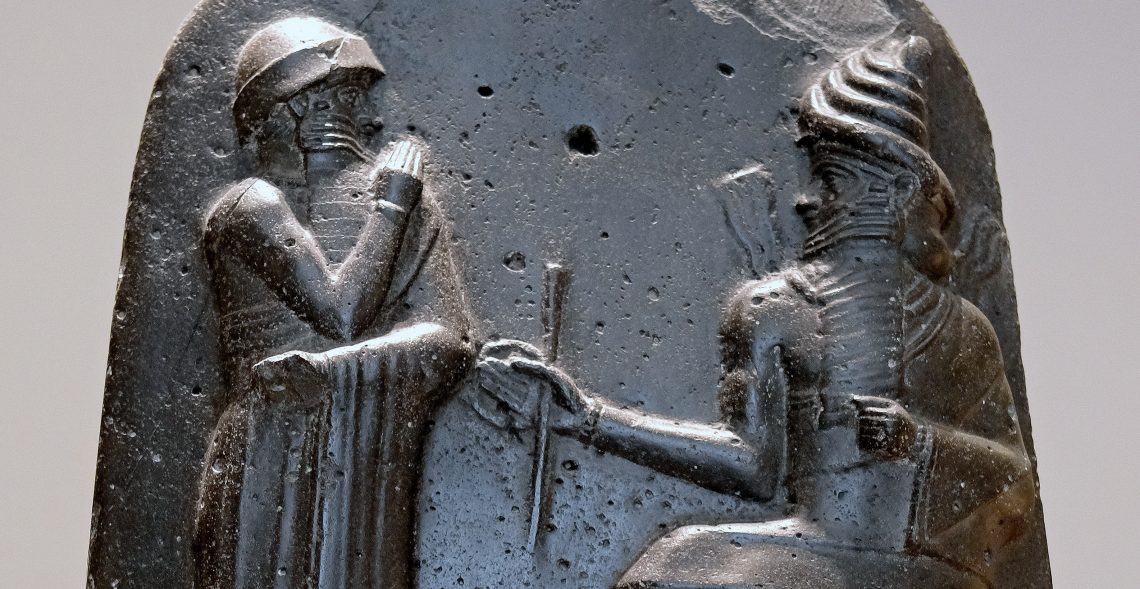Editorial Quick Take
Hammurabi, the eighteenth-century BC Amorite King of Babylon, is known for his law code — one of the earliest expansive sets of laws or judicial precedents in the ancient world. As many people know, the code is most famous for establishing the principle of “an eye for an eye” (lex talionis). The principle may seem barbarous to our modern sensibilities. But it is easy to overlook the fact that the principle also places a limit to retribution. The authorities might take my eye if I poke out yours, and I may have to go through life with a patch. But at least their doing so prevents you from killing me outright! And while the Code of Hammurabi does recognize a relatively fixed system of inequality between the freeborn, the freed, and the slave as well as men and women, there are more protections than might be expected for each class — especially for a code written 3700 years ago!
Even more interesting is how surprisingly ‘progressive’ many of the codes Hammurabi brought together are.
There are laws establishing judicial oversight,
If a judge try a case, reach a decision, and present his judgment in writing; if later error shall appear in his decision, and it be through his own fault, then he shall pay twelve times the fine set by him in the case, and he shall be publicly removed from the judge’s bench, and never again shall he sit there to render judgement. (5)
providing for debt relief,
If any one owe a debt for a loan, and a storm prostrates the grain, or the harvest fail, or the grain does not grow for lack of water; in that year he need not give his creditor any grain, he washes his debt-tablet in water and pays no rent for this year. (48)
allowing a woman to file for divorce,
If a woman quarrel with her husband, and say: “You are not congenial to me,” the reasons for her prejudice must be presented. If she is guiltless, and there is no fault on her part, but he leaves and neglects her, then no guilt attaches to this woman, she shall take her dowry and go back to her father’s house. (142)
providing for long term disability care,
If a man take a wife, and she be seized by disease, if he then desire to take a second wife he shall not put away his wife, who has been attacked by disease, but he shall keep her in the house which he has built and support her so long as she lives. If this woman does not wish to remain in her husband’s house, then he shall compensate her for the dowry that she brought with her from her father’s house, and she may go. (148, 149)
setting up a warranty system,
If a shipbuilder build a boat for some one, and do not make it tight, if during that same year that boat is sent away and suffers injury, the shipbuilder shall take the boat apart and put it together tight at his own expense. The tight boat he shall give to the boat owner. (235)
and even establishing minimum wage laws,
If any one hire a day laborer, he shall pay him from the New Year until the fifth month (April to August, when days are long and the work hard) six gerahs in money per day; from the sixth month to the end of the year he shall give him five gerahs per day. (273)
While the ancient world may very well have been more violent than ours, the law codes of even the most ancient peoples (flawed though those laws were and as ours are) echo through the ages with a basic, humane instinct for justice, mercy and peace.
If you haven’t read all of the Code of Hammurabi, it is well worth your time! Click one of the versions below:






One Comment
Tom King
Commonsense was more common than we knew. We could use a dash or two in our own era.